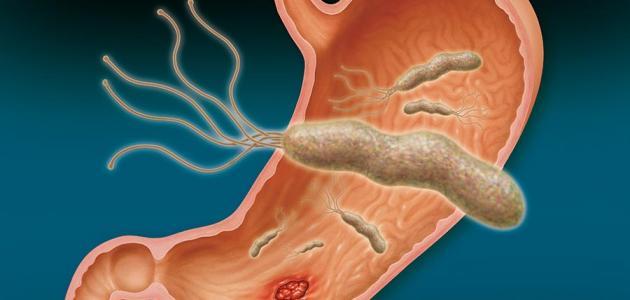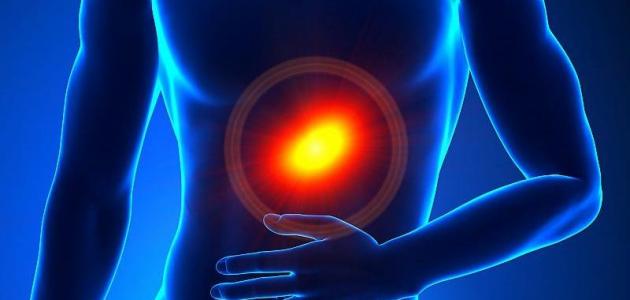Abdominal gas
Abdominal gas is one of the natural things that occur in everyone, which may cause embarrassment or discomfort to some individuals. One of the most common symptoms of flatulence is belching, flatulence, bloating, or abdominal pain. To find the best solutions to feel comfortable and reduce the symptoms of flatulence, do not It is necessary to understand its causes and the mechanism of its occurrence, and this will be explained in this article in some detail.
Natural sources of flatulence
There are two main sources of flatulence: gas produced by bacteria in the colon, and gas that is swallowed. It is mainly air.
air swallowing
Swallowing air (in English: Aerophagia) in small quantities while eating or drinking is normal, but this excessive occurrence is one of the common causes of the formation of abdominal gases, and burping (in English: Burping) is one of the most natural ways through which the body is rid of toxins. Swallowed air and gases that caused the stomach to expand and swell so that these gases are expelled from it, and the swallowed air includes nitrogen, oxygen and carbon dioxide gases, and after burping, the rest of the gases move to the small intestine, and some of them are absorbed into the bloodstream, and then the remaining part is transmitted From these gases to the large intestine, where it is released through the rectum, and it is worth knowing that the stomach may produce carbon dioxide when its acids interact with bicarbonate salts; However, this gas does not move to the large intestine; Rather, it is absorbed and transferred to the bloodstream, and it is important to note that the amount of gases reaching the small intestine may be affected by the position of the body. It causes farting, and it should be noted that belching may be automatic, involuntary, or voluntary, and belching may increase after eating some types of food such as mint, chocolate, and fats. Because these foods have an effect on the expansion and relaxation of the sphincter muscle (in English: Sphincter), which is located in the lower part of the esophagus that connects to the stomach.
Read also:What is the specialty of internal diseases and what are its tasksbacterial production
There are certain types of beneficial bacteria in the large intestine or colon, which are naturally present in every person since birth, and which are responsible for digesting materials and food residues that are usually not digested in the upper part of the digestive system, and among these materials; Cellulose and complex carbohydrates, including sugars, starch, and fiber. This digestion process results in a group of gases, including hydrogen, carbon dioxide, and methane may sometimes result. Trace gases, such as hydrogen sulfide, are the gases responsible for the unpleasant odor. For the wind, and it should be noted that the quality and quantity of gases produced depends on the type of bacteria present in the colon; As these types of bacteria may vary from person to person, and this is the main reason behind the different effects of some food items among people.
The
Reasons for increased stomach gases
An individual naturally excretes an estimated half to a liter and a half of gas through the anus, 14-23 times during a day, and it is normal to excrete gas through burping before or after eating, so most people who complain of gas Excessive gases do not produce more gases than the average person, and it should be noted that the amount of gases produced by the body may depend on the quality of food that the individual eats, the presence of some medical conditions, and the presence of other individual factors.
Read also:What is the treatment for flatulence?Increased air swallowing
There are many factors that may lead to an increase in swallowing air more than usual, including; Eating or drinking quickly, drinking soft drinks, smoking in all its forms, sucking on hard candy, chewing gum, ill-fitting dentures, chronic post-nasal drip and suffering from anxiety are factors that increase the risk of depression. Swallowing air.
some types of food
Fats and proteins are food sources that do not cause an increase in abdominal gas, unlike carbohydrates and sugars. Sugars and carbohydrates that are poorly digested in the digestive system are referred to as FODMAP. FODMAP is a natural component of some types of food and artificial sweeteners. Examples of foods that contain FODMAPs are soluble fiber, insoluble fibre, lactose, fructose, sorbitol, raffinose, and starch.
Sugars
The following sugars are among the main sugars that cause flatulence:
- Fructose: Or fruit sugar. This sugar is found in onions, wheat, artichokes, and pears (European pears). This sugar is also used as a sweetener for some soft drinks and fruit drinks. It should be noted that eating large quantities of foods containing fructose in a row may cause an increase in gas. produced; Especially in individuals who suffer from malabsorption of fructose (in English: Fructose malabsorption).
- Lactose: Or milk sugar, which is one of the natural ingredients of milk and its derivatives such as cheese and ice cream, and it is also used in processed foods such as bread and cereals. It is important to note that the appearance of gases in some people after eating foods containing lactose may indicate suffering from lactose intolerance. ; Which occurs when the body encounters difficulty in digesting and breaking down lactose, and symptoms of this condition include diarrhea, abdominal pain, and bloating after consuming milk products.
- sorbitol: This sugar is a natural sugar found in fruits and can be used as a substitute for sugar or as an artificial sweetener in many diet foods, chewing gum or sugar-free desserts.
- Raffinose: Raffinose is a complex sugar found in beans, cabbage, broccoli, whole grains, collard greens, asparagus and many other vegetables.
starch
Starch is available in many food items, including corn, potatoes, wheat, and pasta. Gases result from the breakdown of starch in the large intestine. Rice is the only source of starch that does not cause an increase in gases.
Read also:Deworming in adultsFiber
Fiber is of important value for the health of the digestive system, but on the other hand, it is a source of gas production, and the effect of these fibers differs from one person to another, in addition to the difference in the effect of the type of fiber that is eaten between individuals, there are two basic types of fibers, the water-soluble fiber And fibers that are not dissolved in water. As for the fibers soluble in water, when these fibers dissolve with water, they turn into a gelatinous gel, and the fact that the small intestine cannot break them down, which leads to adding an additional effort to the gas-producing bacteria inside the intestines, where these fibers move to the large intestine and the process takes place. Breaking and digesting them, and this is accompanied by the production of gases, and this type of fiber is found in most fruits, peas, beans, and oat bran. of fiber does not cause a significant increase in gases and these fibers are found in some types of vegetables and wheat bran, and in fact it is advised to gradually add fiber to food in order to improve gastric symptoms a pill to take.
constipation
Both constipation and eating foods full of fat are among the causes that lead to bloating, and with regard to eating foods full of fat, they cause a delay in emptying the stomach of its contents, and this is what causes bloating and discomfort.
Medicines
Abdominal gases can be a side effect of some drug treatments, including metformin (in English: Metformin); It is a diabetes medication, in addition to lactulose. which is used as a stool softener, and antacids such as magnesium trisilicate may cause; Which is used to relieve symptoms of indigestion, an increase in the amount of carbon dioxide produced from the stomach, which causes exacerbation of belching.
Diseases and health problems
Sometimes some diseases, especially diseases of the digestive system, may cause symptoms related to abdominal gases. Some of these diseases are short-term diseases, including gastroenteritis, which usually occurs due to a viral infection, while some chronic diseases or prolonged exposure to these symptoms.
Celiac disease
Celiac disease or wheat allergy (in English: Celiac disease) is an immune disease; Where the patient suffers from sensitivity to gluten protein found in wheat, barley and rye (in English: rye), and some products such as cosmetics and lip balms, as eating gluten causes destruction of the lining of the small intestine.
Inflammatory bowel diseases
Inflammatory bowel disease is a chronic, long-term disease that affects multiple parts of the digestive system, including the intestines. These parts become sore, inflamed, or enlarged. One of the main symptoms of these diseases is abdominal pain, diarrhea, bloating, and flatulence. One of the most common inflammatory bowel diseases is; Ulcerative colitis, where inflammation occurs in the colon and rectum, in addition to Crohn's disease, where inflammation occurs in the wall of the digestive tract.
diverticulitis
Diverticulosis occurs when mucous protrusions appear in the wall of the colon, also known as diverticula or diverticula, and in the event of inflammation or infection in these diverticulitis (in English: Diverticulitis), the patient may suffer from the appearance of abdominal gases and bloating as symptoms of this disorder.
Bacterial overgrowth in the small intestine
Overgrowth occurs as a result of the presence of abnormally large gatherings of bacteria that digest food in the intestine, which causes the production of quantities of gases that accumulate and fill the abdomen, and patients with some rheumatologic diseases or who have undergone changes may be considered In the structure of the digestive system resulting from surgery, there is a greater risk of bacterial overgrowth in the small intestine, which may lead to suffering from bloating, belching, and passing wind.
Giardiasis
Giardiasis is a disease caused by the Giardia parasite. Symptoms of this disease include diarrhea, flatulence and bloating, in addition to other symptoms.
IBS
Irritable bowel syndrome or irritable bowel syndrome (in English: Irritable Bowel Syndrome) is a medical condition that is accompanied by a group of symptoms, including abdominal cramps, bloating, constipation and diarrhea, as this disorder causes a defect in the function of the large intestine, especially the colon, and this includes A disturbance in the function of each of the muscles and nerves feeding the intestines, and abdominal gases are the main complaint of patients with Irritable Bowel Syndrome. Their nerves and muscles, or the problem of increasing the sensitivity of the intestine to the amount of natural gases, which causes pain and discomfort even with the presence of normal amounts of gases in the abdomen, and it is important to note that the symptoms of irritable bowel syndrome and the factors that increase the gases differ from one patient to another, so there is no standard treatment for all Patients usually focus on changing the types of food that the patient eats.
other reasons
Here is a group of causes and factors that cause flatulence, which were not mentioned earlier in the article:
- Functional dyspepsia: Functional dyspepsia is a chronic disorder that affects peristalsis and sensation in the upper part of the digestive tract, resulting in pain, fullness, bloating, and inability to finish a meal.
- pregnancy: Abdominal gases are among the pregnancy problems that many women suffer from, and one of the reasons for the accumulation of abdominal gases during pregnancy is an increase in pressure on the abdomen, especially in the last months of pregnancy, when the size of the uterus increases. The abdomen during pregnancy, as this hormone causes the muscles to relax, and when the intestinal muscles relax, the digestion process becomes slower, causing the accumulation of gases in the abdomen, resulting in bloating and belching.
- Stomach disorders: These include gastroesophageal reflux disease, heartburn, and stomach ulcers.
Prevention of stomach gases
In fact, it is not possible to completely get rid of abdominal gases, but it is possible to reduce their quantities in the digestive system, and here comes a set of tips that may prevent the accumulation of abdominal gases:
- Avoid eating some food items that may be a cause of flatulence, as it is advised to try to get rid of one food at a time and gradually until the varieties that cause flatulence are identified, and among the most popular food items that cause flatulence are beans, onions, cabbage, and some fruits. , soft drinks, whole grains, mushrooms, broccoli, and lentils.
- Read food labels to know the contents, in the event that you suffer from lactose sensitivity, which may appear when eating dairy products, so it is recommended to read food labels and try to eat low-content or lactose-free items, and some types of carbohydrates found in sugar-free items that the digestive system cannot Digested and may cause gas.
- Reducing the intake of foods rich in fats, as fats make the digestion process slower, which increases the time that food is exposed to fermentation.
- Temporarily refrain from eating items rich in fiber, and after a short period it is recommended to gradually and slowly return them to meals.
- Eat and drink slowly to reduce the amount of air swallowed.
- Not chewing gum.
- Walking after eating, and exercising helps regulate digestion.
- Quit smoking, as smoking affects the function of the muscles of the esophagus, stomach and intestines, causing an accumulation of gas, bloating and indigestion.









